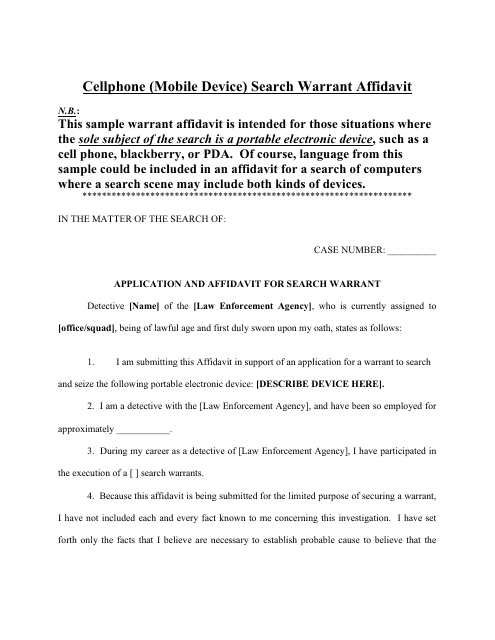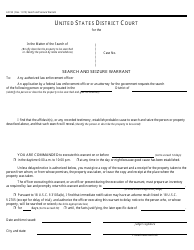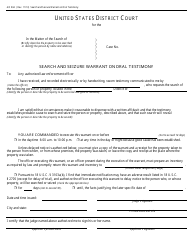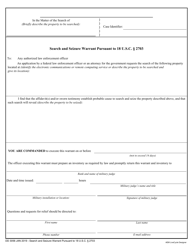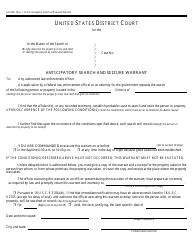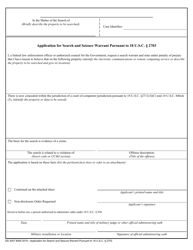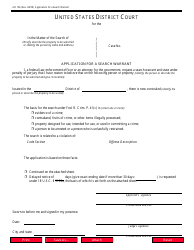Cellphone (Mobile Device) Search Warrant Affidavit
A Cellphone (Mobile Device) Search Warrant Affidavit is a legal document used by law enforcement agencies when they are seeking a judge's permission to search an individual's cellphone or mobile device for evidence related to a criminal investigation. This affidavit is a sworn statement, typically made by a police officer, that outlines the probable cause: specific reasons or circumstances why they believe that evidence of a crime may be found on that particular device. This is necessary under the principles of the Fourth Amendment in the USA, which protects citizens from unreasonable searches and seizures. It is essential to note that such rules and regulations might vary in Canada, India, Australia, or any other country as each nation has its different legal system and constitution.
In the United States, a law enforcement officer or detective typically files the cellphone or mobile device search warrant affidavit. This individual must provide a judge or magistrate with adequate probable cause for the search, describing in detail why they believe that particular evidence related to a crime will be found on the device. After assessing the affidavit, the judge may then issue a warrant granting permission for the search. Please consult local laws as procedures can vary.
FAQ
Q: What is a Cellphone (Mobile Device) Search Warrant Affidavit?
A: A Cellphone (Mobile Device) Search Warrant Affidavit is a document that is presented to a judge or magistrate to justify the need to search a suspect's cellphone, based on the belief that it may contain evidence of a crime.
Q: In which countries are cellphone search warrant affidavits used?
A: Cellphone Search Warrant Affidavits are commonly used in countries like the USA, Canada, India, and Australia, along with many other countries that follow similar legal protocols for the search and seizure of potential evidence.
Q: Who can issue a cellphone search warrant affidavit?
A: A cellphone search warrant affidavit is typically issued by law enforcement officers, such as a police officer or an investigator. The affidavit must then be approved by a judge or magistrate to grant the warrant.
Q: What kind of information can be obtained from a cellphone warrant search?
A: A cellphone warrant search can yield a variety of information, including call logs, text messages, emails, images, videos, GPS locations, app data, internet browsing history, and more.
Q: Are there any privacy concerns related to cellphone search warrant affidavits?
A: Yes, there are significant privacy concerns related to cellphone search warrant affidavits. They need to be specific and justified, as they potentially allow law enforcement to access personal and private information. Failure to provide sufficient justification or to follow the necessary legal protocols can result in the warrant being ruled as unconstitutional.
Q: In what situations might a cellphone search warrant affidavit be requested?
A: A cellphone search warrant affidavit may be requested in any situation where law enforcement believes that a suspect's cellphone contains evidence related to a crime. This could include cases of drug trafficking, child pornography, fraud, cybercrime, and more.
Q: What legal rights do individuals have regarding cellphone search warrants?
A: In places like the US, the Fourth Amendment protects citizens from unreasonable searches and seizures. This includes cellphone searches. Law enforcement must obtain a warrant before conducting the search. Failure to do so, except in certain circumstances, may result in evidence being deemed inadmissible in court.
